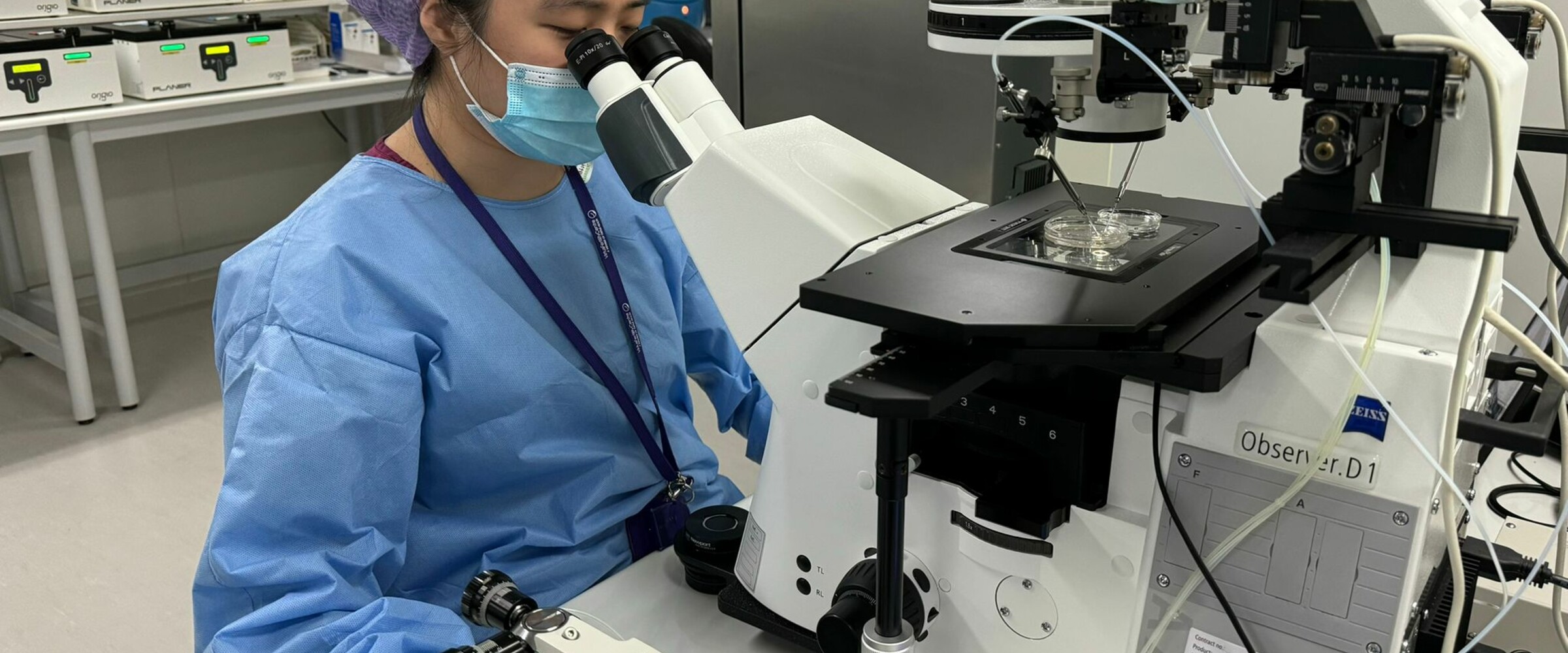
Bringing Life into the World: A Day in the Life of an Embryologist
On July 25th, we celebrate World Embryology Day and World IVF Day, honoring the dedicated embryologists who have significantly advanced reproductive medicine. They play a vital role in helping couples struggling with infertility achieve their dream of parenthood.
Audrey Ang, Embryologist, shares her insights into the daily work of an embryologist and her reasons for choosing this line of work. Inside the IVF lab, every day is a miracle in the making.
Why did you become an embryologist?
My educational background in biomedical science set the stage, but the firsthand experiences of friends and acquaintances who underwent in vitro fertilization (IVF) truly ignited my passion.
What does a typical day look like for you?
A typical day in the lab is both demanding and rewarding.
My day begins around 7:30 AM, with the first task being a thorough check of the incubators and assessment of the development of embryos from the previous day. This involves detailed observation and meticulous documentation of embryo growth stages. We also perform quality control checks to ensure all equipment is functioning correctly.
We perform various procedures throughout the day, such as egg retrievals, embryo freezing, sperm preparations, Intracytoplasmic Sperm Injection (ICSI), and embryo transfers.
Additionally, close collaboration with doctors and patients is a significant part of the job, as it involves discussing their treatment plans and progress.
The day typically wraps up around 5 PM, with data entry and planning for the next day’s procedures.
It sounds like a lot to complete within a day. But we have a wonderful team of embryologists who share these responsibilities daily, with specific assignments to keep the workflow moving efficiently. Each team member brings unique skills and experiences, and we work together closely to ensure the best patient outcomes.
What are some of the biggest changes to IVF in your career?
IVF has advanced dramatically since the first IVF baby was born in 1978. Technological advancements have significantly impacted the field of embryology, revolutionizing how we approach IVF. Innovations such as time-lapse imaging allow for continuous monitoring of embryo development, providing deeper insights into their viability.
Polarised Light Microscopy (PLM) enhances the visualization of oocytes (eggs), allowing embryologists to assess the quality of the zona pellucida, a thick, dark line surrounding the oocyte, and the barrel-shaped spindle structure inside the egg near the first small cell formed during egg development. Both are essential for fertilization and early embryonic development. If either of these structures is damaged or missing, it can lead to infertility or genetic disabilities. This technique improves the selection process by providing detailed information about the cellular structure of the oocytes.
Other advancements include improvements in cryopreservation methods, such as vitrification[1], which have increased the success rates of freezing and warming eggs and embryos.
Artificial intelligence is also beginning to play a role in embryo selection and overall lab efficiency, achieving higher IVF and subsequent pregnancy success rates for patients undergoing the treatment.
What are the most demanding aspects of your job?
Decision-making, especially in complex patient cases, is a primary challenge. Balancing the technical aspects of embryology with the emotional weight of patients' hopes and dreams can be taxing.
Emotional resilience is crucial, as we constantly engage with couples undergoing IVF, often dealing with their anxieties and expectations. Maintaining a compassionate yet professional demeanor requires significant emotional strength that allows us to support our patients.
What is your favourite part of your job?
It's witnessing life's delicate, intricate processes at their earliest stages. Understanding the profound impact of this work on families was a powerful motivator. This newfound passion led me to pursue further education and training in embryology, ultimately guiding me to my current role, where I play a pivotal role in helping families realize their dreams of parenthood.
What would be essential for those who want to enter the profession?
For those planning to enter the field, staying updated with the latest technological advancements and research is crucial. A commitment to continuous learning is essential as the field is constantly evolving. This profession requires a strong foundation in biology, so investing in your education is vital. Hands-on experience is invaluable; seek internships or lab positions to gain practical skills.
Additionally, develop your emotional resilience and interpersonal skills, as working closely with patients is a significant aspect of the job.
Lastly, be patient and persistent. The path to becoming an embryologist can be challenging. Still, the joy of witnessing the miracle of life at its earliest stages and the fulfillment of helping families achieve their dreams make every moment worthwhile.
[1] A technique used to freeze biological samples in a way that prevents the formation of ice crystals, which can damage the cells. It is widely used in the field of reproductive medicine, particularly for the preservation of eggs, sperm, and embryos. The method has successfully maintained the viability and function of these cells upon thawing, which is crucial for procedures such as in vitro fertilization (IVF).
